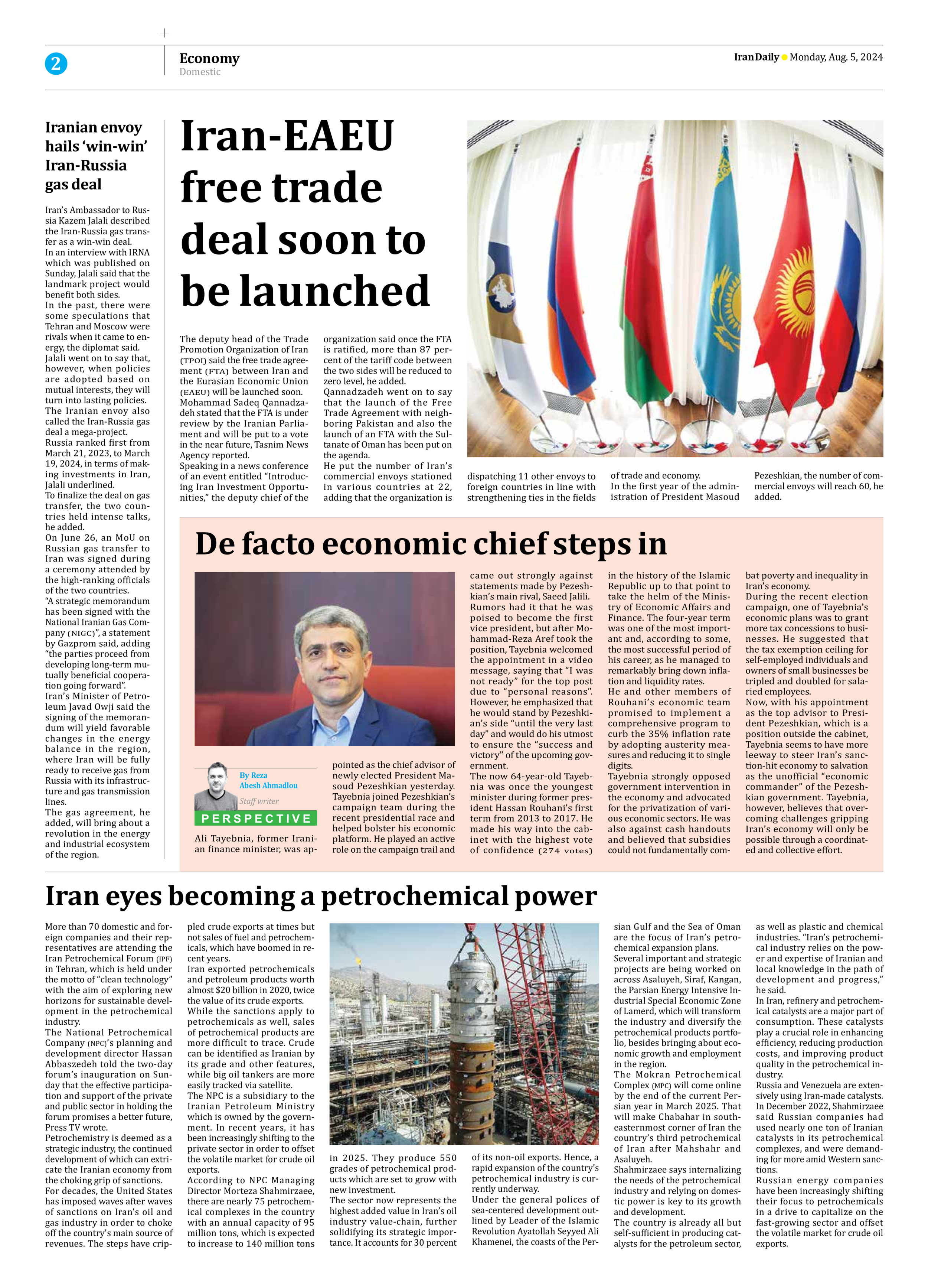
De facto economic chief steps in
By Reza
Abesh Ahmadlou
Staff writer
Ali Tayebnia, former Iranian finance minister, was appointed as the chief advisor of newly elected President Masoud Pezeshkian yesterday. Tayebnia joined Pezeshkian’s campaign team during the recent presidential race and helped bolster his economic platform. He played an active role on the campaign trail and came out strongly against statements made by Pezeshkian’s main rival, Saeed Jalili.
Rumors had it that he was poised to become the first vice president, but after Mohammad-Reza Aref took the position, Tayebnia welcomed the appointment in a video message, saying that “I was not ready” for the top post due to “personal reasons”. However, he emphasized that he would stand by Pezeshkian’s side “until the very last day” and would do his utmost to ensure the “success and victory” of the upcoming government.
The now 64-year-old Tayebnia was once the youngest minister during former president Hassan Rouhani’s first term from 2013 to 2017. He made his way into the cabinet with the highest vote of confidence (274 votes) in the history of the Islamic Republic up to that point to take the helm of the Ministry of Economic Affairs and Finance. The four-year term was one of the most important and, according to some, the most successful period of his career, as he managed to remarkably bring down inflation and liquidity rates.
He and other members of Rouhani’s economic team promised to implement a comprehensive program to curb the 35% inflation rate by adopting austerity measures and reducing it to single digits.
Tayebnia strongly opposed government intervention in the economy and advocated for the privatization of various economic sectors. He was also against cash handouts and believed that subsidies could not fundamentally combat poverty and inequality in Iran’s economy.
During the recent election campaign, one of Tayebnia’s economic plans was to grant more tax concessions to businesses. He suggested that the tax exemption ceiling for self-employed individuals and owners of small businesses be tripled and doubled for salaried employees.
Now, with his appointment as the top advisor to President Pezeshkian, which is a position outside the cabinet, Tayebnia seems to have more leeway to steer Iran’s sanction-hit economy to salvation as the unofficial “economic commander” of the Pezeshkian government. Tayebnia, however, believes that overcoming challenges gripping Iran’s economy will only be possible through a coordinated and collective effort.







